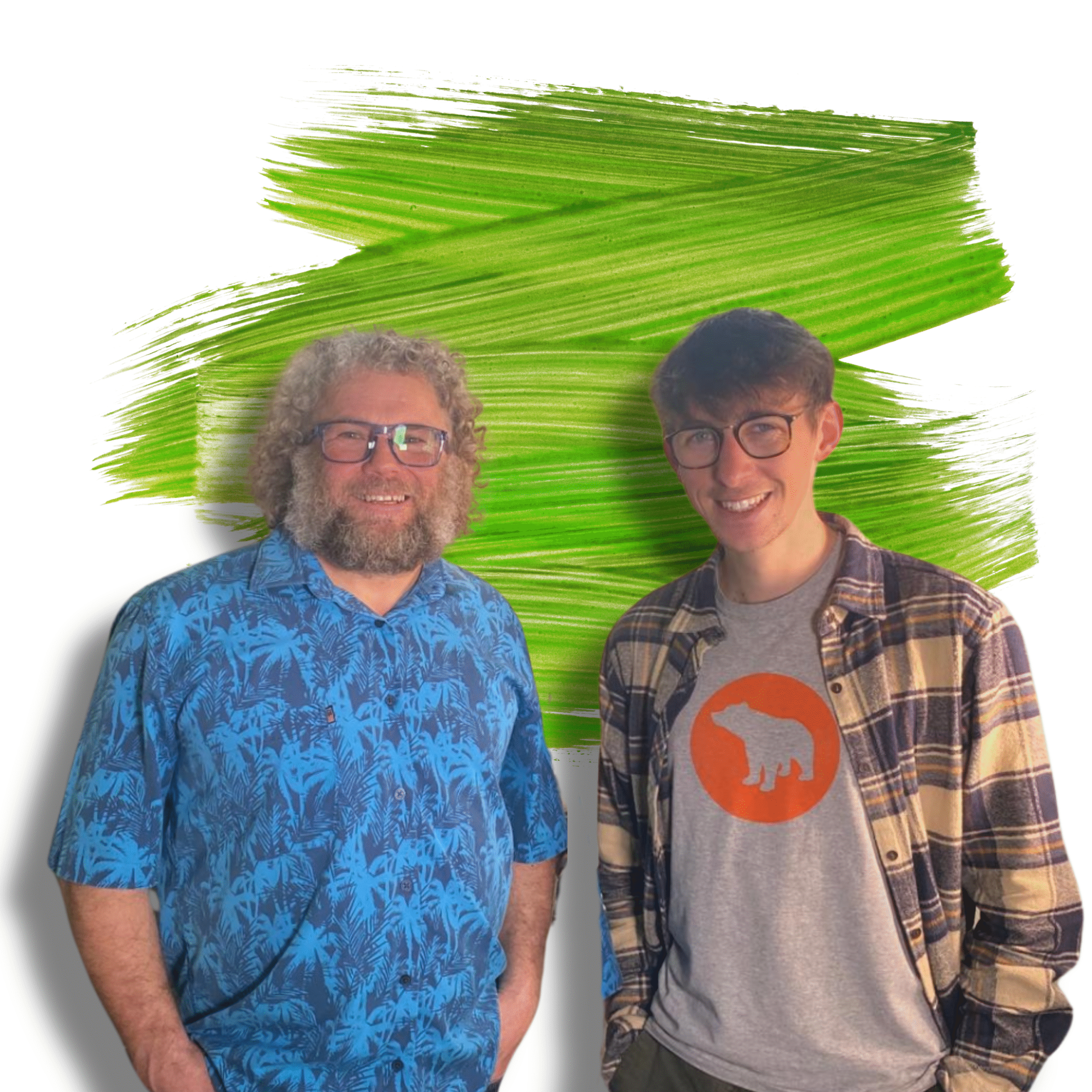16 June 2025
50:46
Jake Causley
OVERVIEW:
Curly Steve and Jake discuss the impact of eco-anxiety on individuals' actions and empowerment. Jake explains that eco anxiety is a range of emotions, including numbness, motivation, and fear, in response to the climate crisis. He emphasises the importance of community, reflective activities, and visualisation in overcoming eco-anxiety. Jake highlights the significant impact of dietary changes, particularly shifting to plant-based diets, which reduce land and water usage by 75%. He also discusses the role of protests and financial actions, such as switching to sustainable banks, in driving systemic change. Jake shares his personal experiences with protests and the importance of balancing personal contradictions while advocating for sustainability.TOPICS
UncategorisedAVAILABLE ON:

WATCH ON YOUTUBE
The Chat
Climate Educator and Force of Nature Associate
Can Our Emotions Be Our Superpower?
Jake opens with the idea that emotions, often seen as fragile or obstructive, might in fact be our greatest assets in facing the climate crisis. He describes eco-anxiety not as a single emotion, but a blend of fear, grief, numbness, hope, and motivation. This emotional mix reflects connection, not weakness.
Understanding Eco-Anxiety and Ecophobia
We explore the spectrum from paralysis (ecophobia) to agency-fuelled action (eco-anxiety). Jake highlights the importance of recognising your feelings, reflecting on personal turning points, and using past actions to guide your next steps.
Force of Nature: Mental Health Meets Climate Action
Jake introduces Force of Nature, a community working to bridge the gap between climate awareness and mental health. Their work includes resources, training, and community support aimed at turning anxiety into agency, particularly for younger generations, though open to all.
Protest, Arrest and Real Change
Jake shares his experiences of nonviolent protest, including being arrested for sitting in a London road with Just Stop Oil. He reflects on the impact of peaceful disruption in the face of political inaction and the importance of historical lessons in civil disobedience.
Contradiction and the Myth of Perfection
We discuss the tension of trying to live sustainably while navigating the real world. Jake speaks candidly about owning a diesel campervan, the judgement that followed, and how transparency and critical thinking matter more than perfection.
Big Impact Actions Anyone Can Take
Jake walks us through high-impact personal choices that go beyond the token gestures. Dietary shifts, finance decisions, joining protests, and engaging in community are all discussed as effective and accessible starting points.
Nature is Responsible
Connection to nature underpins Jake’s wellbeing and environmental action. Whether it is walking in the woods or surfing in the sea, nature supports his mental health and reminds him of what he is fighting for.
Jake’s Top Achievable Tips
-
Switch your bank to one that does not invest in fossil fuels. Triodos, Nationwide, and Starling are among those with stronger sustainability policies
-
Change your diet. Start small. Try one plant-based meal a week and build from there
-
Protest. Get involved in collective action, even if not on the front lines. There are many ways to contribute
-
Reconnect with nature. It supports your physical and mental health and brings perspective
-
Talk to your pension provider and move to a green pot if available
-
Remember that doing something is better than doing nothing. Progress, not perfection
Jake’s Evidence
-
70% of young people report mental health impacts from climate change, yet only 25% feel they know what to do
-
A plant-based diet can reduce land use and emissions by up to 75%
-
Each person is worth around £1.5 million in leverage to their bank over a lifetime
-
Protests such as those led by Just Stop Oil have contributed to shifts in policy and public conversation
-
Community connection is a key factor in building climate agency and overcoming disempowerment
What One Thing Can We Do Today to Make a Better Tomorrow?
Sit with your feelings. Make space to notice how climate and ecological issues make you feel. That emotional reflection will guide you to your own best form of action.
Contact Details
LinkedIn: Jake Causley
Instagram: @jakecausley11


